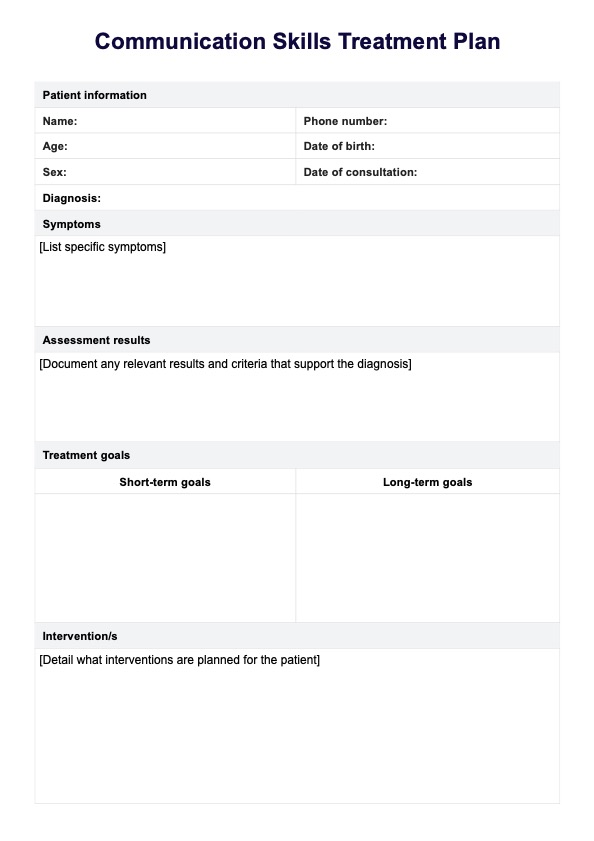Communication skills are essential for building strong relationships, resolving conflicts, and succeeding in both personal and professional settings.

Communication Skills Treatment Plan
Explore how a Communication Skills Treatment Plan works. Download a free PDF template to help create effective treatment plans for your patients.
Use Template
Communication Skills Treatment Plan Template
Commonly asked questions
You can improve your communication skills by practicing active listening, seeking feedback, engaging in therapy or coaching, and focusing on both verbal and nonverbal cues.
Common barriers to communication include language differences, lack of clarity, emotional barriers, cultural differences, and distractions that hinder effective message delivery.
EHR and practice management software
Get started for free
*No credit card required
Free
$0/usd
Unlimited clients
Telehealth
1GB of storage
Client portal text
Automated billing and online payments











